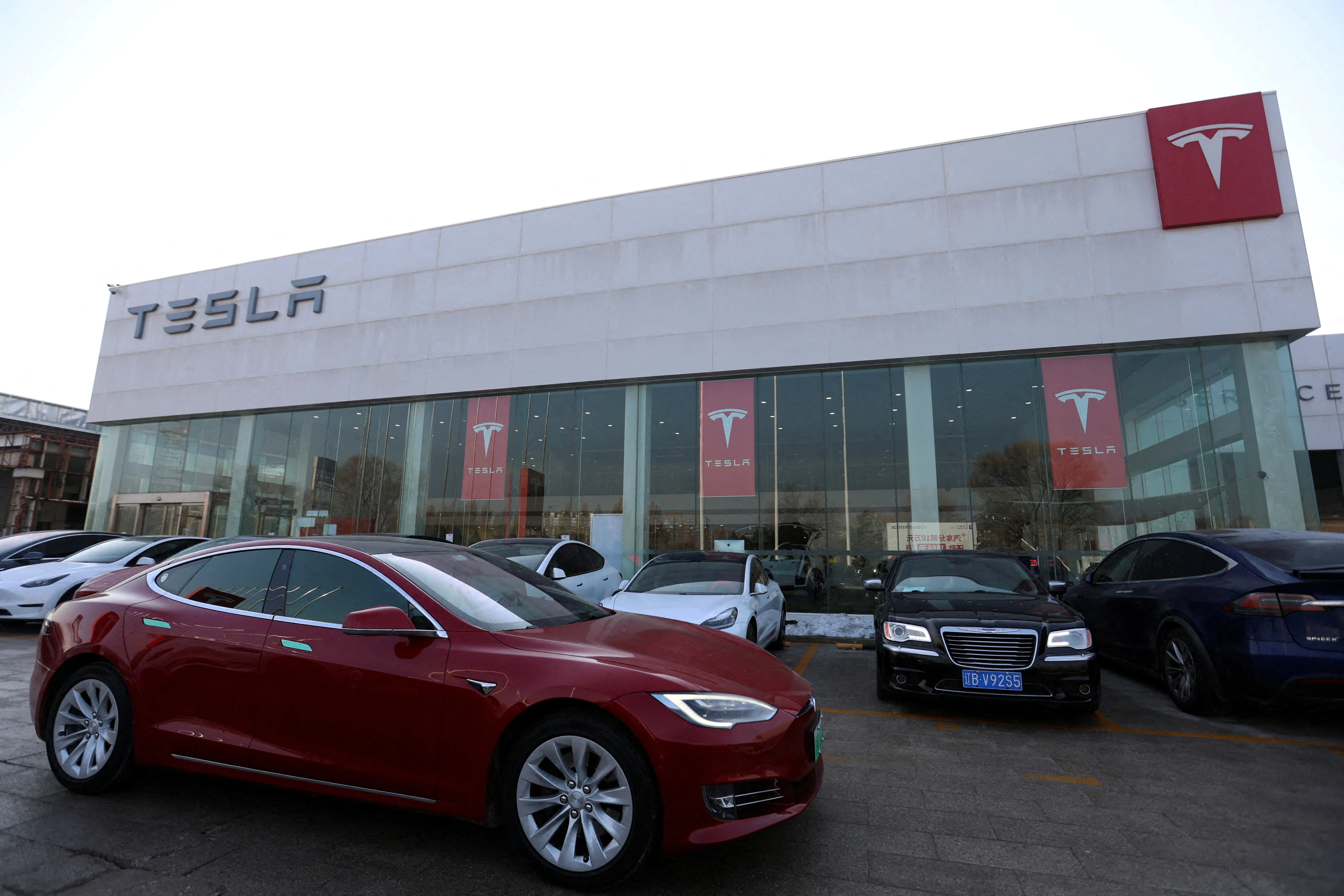TESLA’s China-made wholesale deliveries fell to the lowest in more than 2½-years last month, adding to a troubling slide in global sales at a time when chief executive officer Elon Musk is increasingly distracted by politics.
The carmaker’s shipments plunged 49 per cent in February from a year earlier to 30,688 vehicles, according to preliminary data from China’s Passenger Car Association. That was the lowest monthly figure since July 2022 when it shipped just 28,217 electric vehicles (EVs) and compounds a slow start in China – one of Tesla’s most important markets – after it delivered 63,238 vehicles from its Shanghai factory in January.
The weak performance in China also adds to a string of sales declines across Europe, even as industrywide EV sales soared, stoking concern buyers are souring on Tesla as Musk embraces polarising political figures. In Australia, Tesla’s sales plunged 72 per cent in February, according to the country’s Electric Vehicle Council.
Tesla’s softening numbers in China, the world’s biggest auto market, stand in stark contrast to domestic giant BYD which sold more than 318,000 pure electric and hybrid passenger vehicles last month, up 161 per cent year on year. Whereas sales reflect consumer activity at the retail level, wholesales more closely align with the number of cars rolling off production lines and reflect export demand.
The drop in deliveries also came during a period it halted production to upgrade lines for the latest Model Y release. Without that, the wholesale performance would have been flat, according to Bloomberg Intelligence analyst Steve Man.
However, the downward trend could also suggest that in China Tesla faces the more practical threat of domestic manufacturers offering a more enticing range of tech-laden and affordable cars to local drivers.
BT in your inbox
Start and end each day with the latest news stories and analyses delivered straight to your inbox.
For instance, BYD last month made its advanced driver assistance technology standard in most of its cars, including some of its more affordable models, while smartphone maker Xiaomi has had immediate success with its foray into the EV market.
Tesla’s shares fell 4.4 per cent in New York on Monday (Mar 3), to be down 32 per cent this year. The shares have now wiped out most of the gains made after the US election, when investors bet Musk’s close relationship with President Donald Trump would be advantageous to his companies.
Tesla is coming off a tough 2024 in China, when it recorded its first-ever drop in annual shipments from the Shanghai plant since the facility started mass production in 2020, a sign of intensifying local competition and lukewarm global demand.
Worldwide, Tesla sold 1.79 million EVs last year, slightly less than it delivered in 2023 and also below analyst estimates. BYD, which stopped making vehicles powered entirely by fossil fuels in 2022, sold 1.76 million battery-powered cars. Including hybrids, BYD sold 4.25 million passenger vehicles last year.
The PCA estimated that overall wholesales of new-energy vehicles in China soared 82 per cent in February from a year earlier. BLOOMBERG







